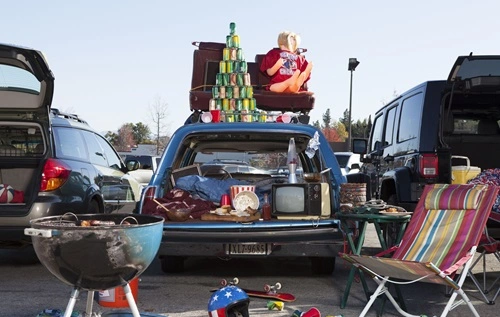Yes, tailgating is illegal in the United States. Every state has laws requiring drivers to maintain a safe following distance to prevent accidents. Tailgating, or following another vehicle too closely, can lead to fines, points on your license, increased insurance rates, and liability in the event of a collision.
What Is Tailgating?
Tailgating occurs when a driver follows another vehicle too closely, failing to leave enough space to safely react in case the leading vehicle slows down or stops suddenly. This behavior is not only dangerous but also a traffic violation across all states.
The distance considered “safe” varies depending on speed, weather conditions, and traffic laws. A general rule of thumb is the three-second rule, where a driver should maintain at least three seconds of distance between their vehicle and the one ahead.
Legal Framework for Tailgating
State Laws on Following Distance
Each state has its own version of laws prohibiting tailgating. Here are a few examples:
- California: Under California Vehicle Code Section 21703, drivers must maintain a “reasonable and prudent” following distance. Tailgating violations can result in fines and points on a driver’s record.
- Texas: State law prohibits drivers from following another vehicle more closely than is “reasonable and prudent,” taking into account speed and traffic conditions.
- Florida: Tailgating is classified as aggressive driving under Florida law, which carries higher penalties.
- New York: Drivers who tailgate can face fines and potential points on their licenses under New York traffic regulations.
Commercial Vehicles
Commercial drivers are often held to stricter standards. Federal Motor Carrier Safety Regulations (FMCSR) require truck drivers to leave enough space to prevent collisions, given their vehicle’s longer stopping distance.
Penalties for Tailgating
1. Fines:
- Fines for tailgating typically range from $20 to $500, depending on the state and circumstances.
- In some states, fines increase for repeat offenses or if tailgating leads to an accident.
2. License Points:
- Tailgating violations often result in points on a driver’s record, which can accumulate and lead to license suspension.
- For example, California assigns one point for a tailgating violation, while states like New York can assign up to four points.
3. Increased Insurance Premiums:
- Being cited for tailgating can result in higher insurance rates, as it indicates risky driving behavior.
4. Civil Liability:
-
- If tailgating leads to an accident, the driver at fault is likely to be held liable for damages in civil court.
Why Is Tailgating Illegal?
Tailgating poses significant risks to road safety, including:
1. Rear-End Collisions:
- Tailgating is one of the leading causes of rear-end collisions, which account for nearly 30% of all traffic accidents in the U.S.
2. Aggressive Driving:
- Tailgating is often part of aggressive driving behaviors that can escalate into road rage.
3. Reduced Reaction Time:
- Following too closely leaves insufficient time to react to sudden stops or emergencies.
4. Increased Traffic Congestion:
- Tailgating disrupts traffic flow and increases the likelihood of accidents, causing delays for other drivers.
Defensive Driving Tips to Avoid Tailgating
1. Follow the Three-Second Rule:
- Ensure at least a three-second gap between your vehicle and the one in front, adjusting for weather or road conditions.
2. Increase Distance in Adverse Conditions:
- In rain, snow, or fog, extend the gap to at least four or five seconds.
3. Avoid Aggressive Driving:
- Stay calm in heavy traffic and avoid retaliating against tailgaters by slowing down abruptly or “brake-checking.”
4. Use the Right Lane:
- If you notice a faster vehicle tailgating you, move to the right lane to let them pass.
Recent Cases and Legal Updates
1. California, 2023:
- Law enforcement ramped up tailgating enforcement on highways, issuing hundreds of citations during a safety campaign.
2. Florida, 2024:
- New legislation increased fines for tailgating incidents that lead to accidents, particularly in work zones or school zones.
3. Texas, 2024:
- A court held a tailgating driver liable for damages after their behavior caused a multi-car collision during heavy rain.
Common FAQs
Q1. Is tailgating always considered illegal?
Ans: Yes, in all states, tailgating violates traffic laws that require maintaining a safe following distance.
Q2. What are the consequences of tailgating?
Ans: Consequences include fines, points on your license, increased insurance premiums, and potential liability in accidents.
Q3. Can tailgating lead to criminal charges?
Ans: Yes, if tailgating causes a serious accident or is deemed part of reckless or aggressive driving, it may result in misdemeanor or felony charges.
Q4. What should I do if someone is tailgating me?
Ans: Stay calm, avoid abrupt braking, and move to the right lane to let them pass. Do not engage in aggressive behaviors like brake-checking.
Q5. Are truck drivers held to stricter tailgating standards?
Ans: Yes, commercial truck drivers must follow federal regulations requiring greater stopping distances due to the size and weight of their vehicles.

